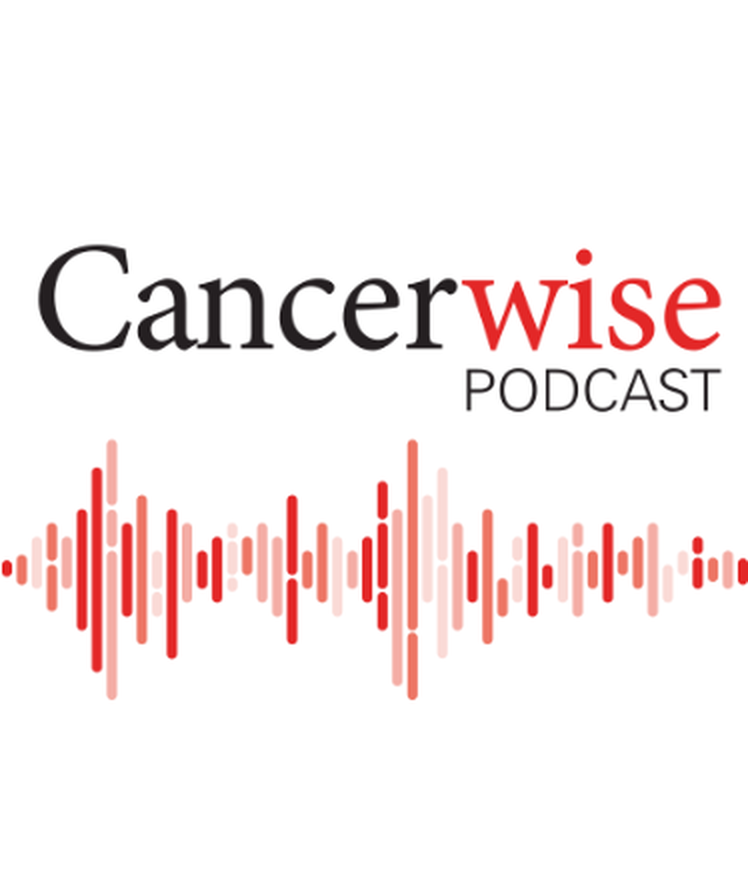request an appointment online.
- Diagnosis & Treatment
- Cancer Types
- Endometrial Cancer
Get details about our clinical trials that are currently enrolling patients.
View Clinical TrialsEndometrial cancer is the most common cancer of the female reproductive organs. It starts in the endometrium, a layer of tissue that lines the interior of the uterus, or womb.
Endometrial cancer is the most common cancer of the female reproductive organs. It starts in the endometrium, a layer of tissue that lines the interior of the uterus, or womb.
Endometrial cancer is the most common cancer of the female reproductive organs. It starts in the endometrium, a layer of tissue that lines the interior of the uterus, or womb.
The uterus is where a fetus grows when a woman is pregnant. It is hollow and pear shaped with two main parts:
- The cervix, which is the bottom part and extends into the vagina (the birth canal)
- The body of the uterus, which is the upper part. This also may be called the corpus. It has two main parts: the muscle wall, which contracts when a woman has a baby, and the endometrium.
Prior to menstruation (also called a period), a woman’s endometrium becomes thicker. If she does not become pregnant, the new endometrial tissue is shed as menstrual flow (blood). This happens about every month until a woman stops having periods. When a woman stops having periods it is called menopause.
Endometrial and uterine cancer types
Almost all uterine cancers start in the endometrium, which is the lining of the uterus. The most common endometrial cancer is endometrial adenocarcinoma. Adenocarcinomas are cancers that form from cells that line the inside of certain organs.
Uterine sarcoma is a rare cancer of the uterus, but it is not an endometrial cancer. It is a soft tissue sarcoma that forms in the muscle wall of the uterus. Learn more about soft tissue sarcomas.
Uterine carcinosarcoma are a third type of uterine cancer. These cancer cells look like a mix of endometrial adenocarcinoma cells and sarcoma cells.
Uterine serous carcinoma is a malignant form of serous tumor that can form in the uterus. It is an uncommon form of endometrial cancer that usually affects postmenopausal women.
Clear cell carcinoma (CCC) comprises a rare yet an aggressive subtype, accounting for less than 5% of all uterine carcinomas.
Endometrial cancer statistics
Each year, about 66,000 women in the United States are diagnosed with uterine cancer. Almost all of these are endometrial cancers.
Nearly 80% of cases are diagnosed in women age 55 or older. However, the number of younger women with endometrial cancer is going up.
Most endometrial cancers develop over a period of years. They may start as less serious problems such as endometrial hyperplasia, which is an overgrowth of cells in the lining of the uterus.
Fortunately, many endometrial cancers are found early because of warning signs such as abnormal or postmenopausal bleeding. If endometrial cancer is found in the earliest stages, it often can be treated successfully.
Endometrial cancer risk factors
Anything that increases your chance of getting endometrial cancer is a risk factor. These include:
- Obesity: Being overweight raises your risk two to four times. A higher level of fat tissue increases your level of estrogen which can stimulate the endometrial lining to grow.
- Eating a diet high in fat.
- Age: More than 95% of endometrial cancers occur in women 40 and older.
- Tamoxifen: This breast cancer drug can cause the endometrial lining to grow. If you take tamoxifen and have changes in your menstrual period or bleeding after menopause, it is important to let your doctor know.
- Estrogen replacement therapy (ERT) without progesterone if you have a uterus. Birth control pills may lower your risk.
- Personal/family history of endometrial, ovarian or colon cancer. This may be a sign of Lynch syndrome (hereditary non-polyposis colorectal cancer or HNPCC). Learn more about hereditary cancer syndromes.
- Ovarian diseases, such as polycystic ovarian syndrome (PCOS).
- Complex atypical endometrial hyperplasia: This precancerous condition may become endometrial cancer if not treated. Simple hyperplasia rarely becomes cancer.
- Diabetes.
- Never having been pregnant.
- Number of menstrual cycles (periods): If you started having periods before 12 years old or went through menopause late, your risk of endometrial cancer may be higher.
- Breast or ovarian cancer.
- Pelvic radiation to treat other kinds of cancer. The main risk factor for uterine sarcoma is a history of radiation therapy in the pelvic area.
Not everyone with risk factors gets endometrial cancer. However, if you have risk factors, it’s a good idea to discuss them with your doctor.
Learn more about endometrial cancer:
- Endometrial cancer symptoms
- Endometrial cancer diagnosis
- Endometrial cancer stages
- Endometrial cancer treatment
Behavioral and lifestyle changes can help prevent endometrial cancer. Visit our prevention and screening section to learn how to manage your risk.
Some cases of endometrial cancer can be passed down from one generation to the next. Genetic counseling may be right for you. Learn more about the risk to you and your family on our genetic testing page.
MD Anderson is #1 in Cancer Care


Featured Podcast:
Why are more women under 50 getting cancer?
Therese Bevers, M.D., and Abenaa Brewster, M.D., share what symptoms women should look for and why regular cancer screenings, such as mammograms and Pap tests, are so important to find cancer early, when it's easiest to treat.

Demystifying the well-woman: What to expect during this annual exam
If you’ve never had a well-woman exam before, you might be wondering what to expect. Is it similar to an annual physical? Which parts of your body will the doctor examine? And, which tests will be performed on you, and why?
We spoke with Elizabeth Keeler, M.D., a gynecologist who specializes in caring for women with cancer. Here’s what these important annual doctor visits include — and why you shouldn’t skip yours.
A look at your reproductive medical history
Just as an annual physical with a primary care physician is designed to assess your overall health, a well-woman exam with a gynecologist is meant to gauge your sexual and reproductive health. So, an OB/GYN will likely start off your first visit by talking about your medical history, then move on to your menstrual cycle and sexual history.
“Discussing such intimate topics with a new doctor can be awkward,” acknowledges Keeler. “But they have a valid reason for asking about these things.”
Bleeding between menstrual cycles, heavy periods and bleeding during or after sex, for instance, can all be signs of both cervical and endometrial cancers in pre-menopausal women. Any vaginal bleeding can be a sign of cancer in post-menopausal women. And, the age at which you had your first period or had your first pregnancy can affect your risk of breast cancer.
“That’s why it’s important to be candid with your doctor about whatever you’re experiencing,” says Keeler. “This is the first step in establishing a baseline of what’s normal for you.”
A breast exam
The next thing that happens will likely be a breast exam. You’ll be asked to undress completely (if you haven’t already) and put on a hospital gown, with the opening to the front.
The doctor will then look at your breasts and gently press on them, both with your arms down at your sides and as you lift them over your head. This is to check for any lumps or visual abnormalities that could be early signs of breast cancer. They will also make note of any benign cysts.
Depending on your age, you may be asked to get a mammogram. That’s a type of low-dose X-ray radiologists use to examine breast tissue in more detail. A mammogram can sometimes reveal lumps that are too small to be felt.
“Every woman who is age 40 or older and at average risk for breast cancer should get a mammogram and a clinical breast exam every year,” notes Keeler. “Women at higher risk should talk to their doctors about what age to begin and how frequently they might need them.”
RELATED: Learn how often you should get a mammogram
The pelvic exam: an exam in two parts
Your well-woman visit will also include a pelvic exam. For this, you’ll be asked to lie back on the exam table, place your feet up in the stirrups and let your knees fall to the side. A sheet is usually provided so you can cover yourself.
During the first part of this exam, your doctor will inspect the outside of your vulva and anal area, then use a smooth metal instrument called a speculum to hold the walls of the vagina apart so that they can see the surface of your cervix. They may also take samples of the cervix with what looks like a long plastic brush for a Pap test (also called a Pap smear) or an HPV test.
A Pap test and/or an HPV test
A Pap test is a screening test that detects pre-cancerous and cancerous cell changes in the cervix, while an HPV test is designed to detect multiple strains of the human papillomavirus.
“At least 12 different strains of HPV have been identified as ‘high-risk’ for causing cancer,” notes Keeler. “And the vast majority of cervical cancer cases are caused by HPV.”
In addition to cervical cancer, HPV has also been linked to anal, penile, throat, vaginal and vulvar cancers. That’s why it’s recommended that women start getting HPV tests at age 30 and their first Pap test no later than age 21.
RELATED: Learn how often you should get a Pap smear or an HPV test
The pelvic exam: Part II
For the second half of the pelvic exam, your doctor will insert one or two gloved fingers inside your vagina while pressing on your lower abdomen with the other hand. The purpose of this is to make sure your internal and external anatomy both looks and feels normal.
“Though not an official screening test for ovarian cancer, pelvic exams can also reveal ascites, or fluid in the abdomen,” notes Keeler. “Ascites can be a sign of ovarian cancer, as well as fallopian tube cancer and endometrial cancer. Pelvic exams can uncover abnormal hard spots, too, that sometimes turn out to be tumors.”
If you’re over age 35, your doctor may also insert a gloved finger into your rectum to check for any masses there. “We can sometimes feel pelvic masses better through the anal wall,” Keeler explains, “and it’s an easy way to check for rogue anal masses, too.”
Additional tests you might need
If you’re age 65 or older, or you are menopausal and have other risk factors, your well-woman exam may involve a bone density test to check for osteoporosis, or bone loss. If you don’t have a primary care physician, your OB/GYN may also listen to your heart and lungs, and do a urinalysis and blood tests to check for liver dysfunction, diabetes, anemia and adequate vitamin D levels.
“Cancer is easiest to treat when it’s caught early on,” says Keeler. “And well-woman exams help us find some cancers at that stage. That’s why we strongly encourage women to get these annual check-ups starting at age 21 — and to make them a habit.”
Request an appointment at MD Anderson online or call 1-877-632-6789.

When should you worry about your menstrual cycle?
Abnormal vaginal bleeding can be a symptom of several gynecologic cancers, including cervical, endometrial (uterine) and vaginal. But if you’ve never had a regular menstrual period, you might not know what "abnormal" means.
What constitutes a “normal” menstrual period? How many days should you expect to bleed, and how much time should elapse between each cycle? And, when should you be concerned enough about any irregularities to see a doctor?
Read on for the answers to these questions and more.
How long should a ‘normal’ menstrual period last?
Generally speaking, you should expect to bleed for between two and seven days during each period. Even if you stop and start within that timeframe — say, with a heavy flow for the first two, a steady tapering off for the next three, and then some moderate spotting on the last two (when you thought you were done) — that’s probably OK. But all of the bleeding should occur within that range.
How much time should elapse between your cycles?
The average is around 28 days, which is right at four weeks. But if you can count between 21 and 35 days between each period, that would still be considered normal.
Should I be concerned about heavy periods?
Not necessarily. Among other things, heavy periods could be due to:
- Uterine fibroids: These benign tumors are also known as leiomyoma.
- Adenomyosis: This is another benign condition in which endometrial tissues grow into the uterine wall.
- Endometriosis: This is a benign but painful condition in which endometrial tissue grows outside the uterus.
What’s “normal” will vary from person to person, of course, but your periods should at least be similar from one month to the next.
What about menstrual cramps? Where do they fit in?
Menstrual cramps in and of themselves are not worrisome. But if you suddenly start to have them after never having had them before, that’s concerning. In that case, you should see a doctor.
That being said, no one should have to live with debilitating pain. If you have severe menstrual cramps regularly, seek medical advice. There are many medications available that can help you feel better.
When else should I see a doctor about my menstrual cycle?
If you haven’t begun menstruating yet by age 16, you haven’t established a fairly regular monthly cycle by then, or you are older than 55 and still experiencing vaginal bleeding, consult a gynecologist.
You should also see a doctor if:
- You’re bleeding every week for a couple of days.
- You’re bleeding in bizarre patterns.
- You’re bleeding only once every three or four months.
None of these scenarios is considered normal, so they need to be investigated.
That’s especially true since we’ve been seeing an increase in the number of endometrial cancer diagnoses, especially in women under age 50.
Many of these women are only in their late 20s or early 30s, and they’ve never had normal periods. That means they’ve already logged about 15 years of irregular menstruation, depending on when they started. Often, the reason is because they are anovulatory — or not ovulating — and it’s never been recognized before or dealt with. That can increase your risk of both gynecologic cancers and precancerous conditions, so it’s important to get checked out.
Why is not ovulating a problem?
Ovulation is a normal part of the menstrual cycle that triggers a cascade of other processes in the body, including the shedding of the uterine lining. If your body doesn’t shed that lining regularly, it just keeps growing and building up. And, whether it’s due to polycystic ovarian syndrome or something else, that’s when you can start seeing precancerous changes or even actual uterine cancer develop.
Don’t some contraceptives, such as birth control pills, IUDs and implants, prevent ovulation, too?
Yes. But those devices also contain progesterone, a hormone that shuts down the endometrium. Progesterone thins out the existing lining, too, so it’s very protective against endometrial cancer.
Can anything be done to reduce my risk of developing cancer due to menstrual irregularities?
Yes. Advocate for yourself. If you’re not having regular menstrual cycles, look into why not, and don’t stop until you get some answers.
Something can usually be done to reduce your risk of developing cancer through proper hormone management. But you have to speak up for your doctors to know you have a problem.
Larissa Meyer, M.D., is a gynecologic oncologist who specializes in the treatment of female cancers.
Request an appointment at MD Anderson online or call 1-877-632-6789.
Why choose MD Anderson for endometrial cancer treatment?
MD Anderson's Gynecologic Oncology Center focuses an incredible level of expertise and experience on each patient with endometrial cancer. From diagnosis through treatment and follow-up, your care is personalized and designed especially for you.
Teams of some of the nation's top endometrial cancer experts consider all the options, and then they recommend the most advanced therapies while working to minimize side effects. They have at their fingertips the latest technology and techniques, backed by one of the leading endometrial cancer research programs in the United States.
Personalized endometrial cancer treatment
Your treatment team, which may include gynecologic oncologists, radiation oncologists; pathologists; and diagnostic radiologists, collaborates and communicates each step of the way. A specially trained staff with experience in caring for women with endometrial cancer supports the team.
Surgery is the primary treatment for most endometrial cancers. At MD Anderson, our highly specialized surgeons are among the most experienced and skillful in the country. In many cases, they are able to perform minimally invasive surgeries and use robotic surgery for endometrial cancer. These procedures may help lessen the time it takes you to heal and the time you need to spend in the hospital.
Specialized care and research
At MD Anderson, we go beyond treating disease. We are dedicated to helping women who have been treated for endometrial cancer get back to a healthy life. For instance, we offer special support groups just for women with cancer of the uterus.
Our Gynecologic Genetics Clinic provides genetic counseling for women at risk of inherited cancer syndromes.
In addition, we are working toward a better understanding of endometrial cancer on a molecular basis. We're leading the way in endometrial cancer research, which means we offer a variety of clinical trials of new therapies.
My doctors say that I'm a miracle, but I know miracles happen every day at MD Anderson.
Shannon Magee
Survivor & Volunteer
Treatment at MD Anderson
MD Anderson endometrial cancer patients can get treatment at the following locations.
Clinical Trials
Becoming Our Patient
Get information on patient appointments, insurance and billing, and directions to and around MD Anderson.
myCancerConnection
Talk to someone who shares your cancer diagnosis and be matched with a survivor.
Prevention & Screening
Many cancers can be prevented with lifestyle changes and regular screening.
Counseling
MD Anderson has licensed social workers to help patients, family members and loved ones cope with cancer.
Help #EndCancer
Give Now
Donate Blood
Our patients depend on blood and platelet donations.
Shop MD Anderson
Show your support for our mission through branded merchandise.





